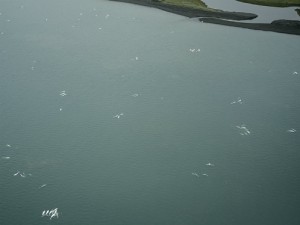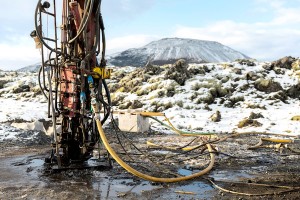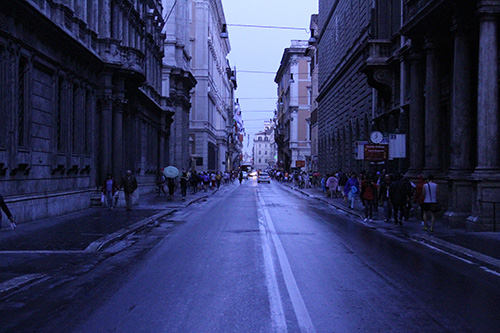 You may wonder, as I do, why and how conservatives (Republicans… however you choose to respectfully refer to them) can continue to fuel climate change denial. Evidence suggests that the house-of-cards policy package ( low taxes, drill everywhere, no regulations) they support cannot admit one such reality without a torrent of others coming into the discussion and justification for their political existence vanishing overnight. A pathetic justification, it also makes the most sense.
You may wonder, as I do, why and how conservatives (Republicans… however you choose to respectfully refer to them) can continue to fuel climate change denial. Evidence suggests that the house-of-cards policy package ( low taxes, drill everywhere, no regulations) they support cannot admit one such reality without a torrent of others coming into the discussion and justification for their political existence vanishing overnight. A pathetic justification, it also makes the most sense.
However, there are conservative pockets drawing pretty ‘reform conservative’ stick figures in the wet cement. As the concrete dries, so do their creaky explanations evaporate. Especially when it comes to climate change, one extraordinarily sawn limb gets walked out on, and it’s really something. A crazy metaphor involving an insurance salesman at your door is proffered to explain why now is still not the time to do anything about carbon emissions… caveat lector. But a rejoinder is offered in the comments that is quite instructive:
I generally think you show a good appreciation for the explanatory power of metaphor and incentives, but this piece is a disappointment. Your insurance policy description is fundamentally flawed: insurance exists to refund some of the losses that will indisputably occur if a low-probability event takes place. Changing our energy consumption and production habits is an action designed to reduce the probability of the catastrophic events occurring. Let’s think about a high-pollution lifestyle as similar to gang membership in the inner city, a popular conservative issue. It may cost a gang member real present resources and satisfaction to quit the gang. It may not even improve the gang member’s chance of not being shot, unless others also stop the violence. But the gang member has no moral claim on others to cease their violence unless he quits as well. And if he continues his present lifestyle he is unlikely to live a healthy or successful life. Based on your recommendation, if fewer of his friends than he expected were killed last year even though he didn’t quit the gang, and he could really use some drug money now, he should stick with it- after all, it’s uncertain future benefit versus known present costs.
People around the world are losing their homes and dying while we argue about whether or not the causality is strong enough, or what magnitude of impact we’re trying to avert.
Lying or stupid was a 2004-vintage take on why Republicans said or supported certain things. Perception certainly evolves and as they get closer and closer to honesty, the trend horizon collapses on available policy prescriptions. That is intentional, and candidates with (R) should rewarded for learning how to run out the clock for the sake of propping up their ideology. One prize we might suggest is election losses, constant and everywhere.
Image: One of my very favorite bands and records of 1981. Never quit this gang.
 Now listen to a story ’bout a man named Jeb! No, that’s not right. Exodus 32? Closer. He wanted to be a knight, and was a great lover of France. When the Jesuit who became Pope took his name, he also knew battle was the best place to win glory and also to protect all of God’s creation:
Now listen to a story ’bout a man named Jeb! No, that’s not right. Exodus 32? Closer. He wanted to be a knight, and was a great lover of France. When the Jesuit who became Pope took his name, he also knew battle was the best place to win glory and also to protect all of God’s creation:
 Lawmakers from at least four states have introduced model legislation from the right-wing group Americans for Prosperity (AFP) seeking to prohibit state funding for the Environmental Protection A
Lawmakers from at least four states have introduced model legislation from the right-wing group Americans for Prosperity (AFP) seeking to prohibit state funding for the Environmental Protection A
 In a test that began in 2012, scientists had injected hundreds of tons of water and carbon dioxide gas 1,500 feet down into layers of porous basaltic rock, the product of ancient lava flows from the nea
In a test that began in 2012, scientists had injected hundreds of tons of water and carbon dioxide gas 1,500 feet down into layers of porous basaltic rock, the product of ancient lava flows from the nea


